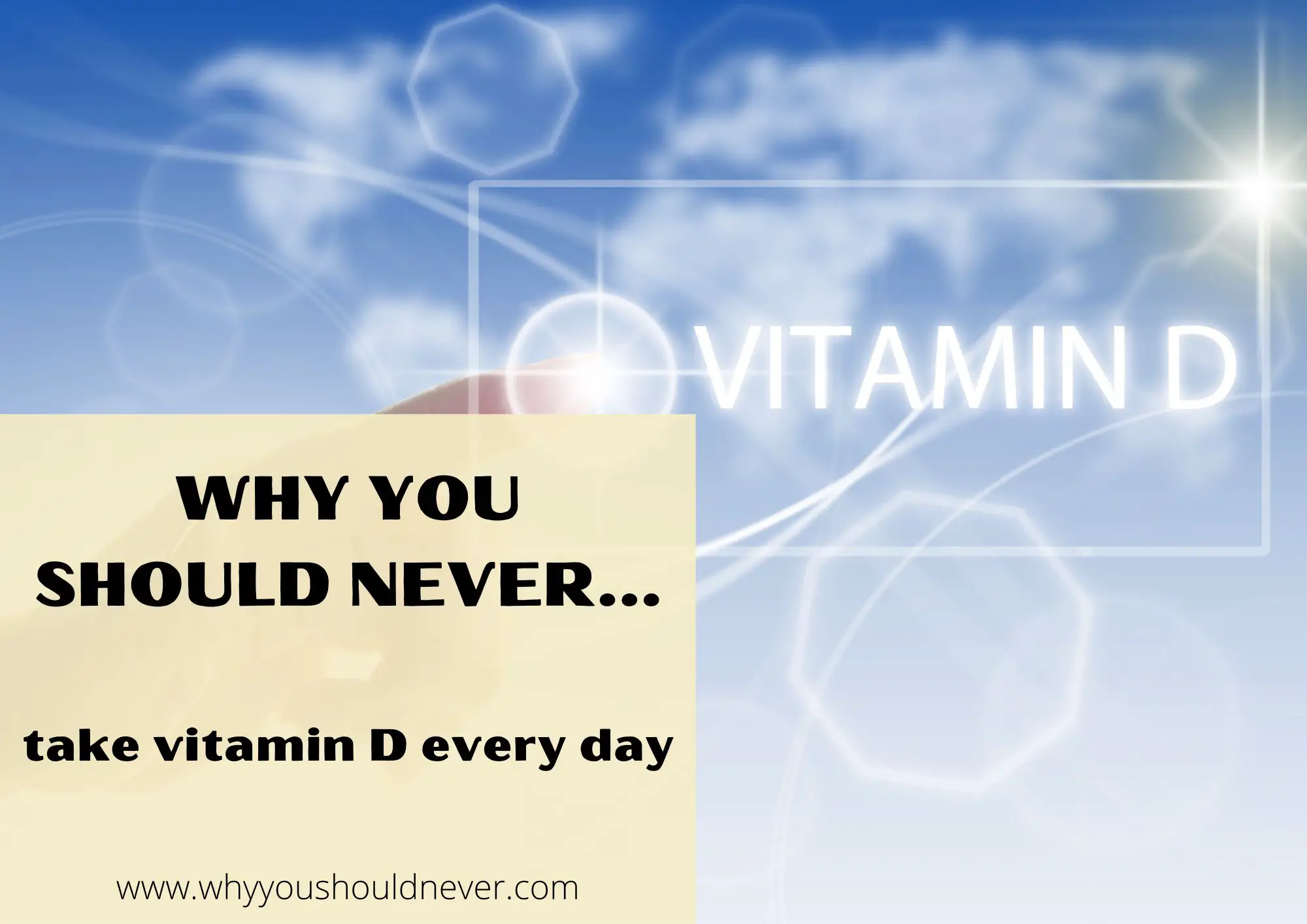![]()
Why You Should Never Take Vitamin D Every Day
You’re here, so that must mean you’ve got vitamin D on your mind. After all, it’s one of the hottest topics in the world of health and wellness, right up there with kale smoothies and intermittent fasting.
Most of us know that vitamin D is often hailed as the ‘sunshine vitamin’, a crucial nutrient that helps our bodies absorb calcium for strong, healthy bones. It also plays a vital role in immune function and may even ward off those gloomy feelings on rainy days.
However, just like many good things, there’s a line between ‘enough’ and ‘too much’. Taking vitamin D daily might not be the best idea for everyone, despite the positive headlines.
Confused? Let’s dive into the “whys” and “wherefores”.
8 reasons why you shouldn’t take vitamin D every day
1. A quick way to overdose
Contrary to popular belief, it is possible to have too much of a good thing, especially with vitamin D. Regularly exceeding the recommended daily intake can lead to vitamin D toxicity, also known as hypervitaminosis D.
This can result in a buildup of calcium in your blood, causing nausea, vomiting, weakness, and frequent urination. In severe cases, it can even lead to bone pain and kidney problems.
2. Not everyone’s the same
Not all bodies are created equal. Depending on your age, skin type, geographic location, and overall health, your need for supplemental vitamin D can vary greatly.
For example, if you’re often exposed to sunshine and eat a balanced diet, your body might already be producing all the vitamin D it needs. So, popping a vitamin D pill every day could simply be overkill.
3. It might interfere with certain medications
If you’re on specific medications, daily vitamin D supplements might interfere with their effectiveness. Medications like steroids, weight-loss drugs, epilepsy medication, and certain heart medicines may not play well with high levels of vitamin D.
Always consult with your doctor before starting any new supplement regime, especially if you’re on prescribed medication.
4. Chasing the sun is better
Your body produces vitamin D naturally when it’s directly exposed to sunlight. It’s a process more refined and tailored to your needs than any supplement could ever be.
A brisk walk during the morning or late afternoon sun could be all you need to top up your ‘D’ levels. Of course, don’t forget your sunscreen!
5. Dietary sources are often overlooked
With the right foods, you might be getting all the vitamin D you need. Fish like salmon, mackerel, and sardines, along with egg yolks and fortified dairy products, are teeming with this essential nutrient.
A balanced diet rich in these foods can often provide enough vitamin D, making supplements unnecessary.
6. Potential for other health issues
Some research suggests that excessive vitamin D supplementation might be associated with other health problems, including an increased risk of falls and fractures in older adults and potential links to certain types of cancers.
However, more research is needed in this area to fully understand these possible connections.
7. Your wallet might not thank you
The price of vitamin D supplements can add up quickly, particularly if you’re taking them daily. Some might argue that it’s a small price to pay for health, but if you’re getting enough vitamin D from sunshine and diet, your wallet will feel more than a bit relieved if you skip the supplement aisle.
8. Quality? It’s a gamble
The supplement industry can be a bit of a minefield. Without rigorous regulations, the actual content of vitamin D in your supplement can be hit or miss. Not all brands guarantee what they promise on the label.
Dodging this uncertainty might just be another good reason to get your vitamin D the old-fashioned way – through diet and sunlight. After all, they come with a quality assurance Mother Nature herself signs off on!
Final word
In a nutshell, while vitamin D is essential, too much, too often, could lead to problems. Always remember that the ‘D’ in vitamin D stands for ‘delicate balance’. Okay, it doesn’t, but it should! The key here is moderation, so let’s give a nod to Hippocrates and agree that “everything in excess is opposed to nature.”
If you’re considering supplements, always have a chat with your healthcare provider first to ensure they’re the right choice for you.
